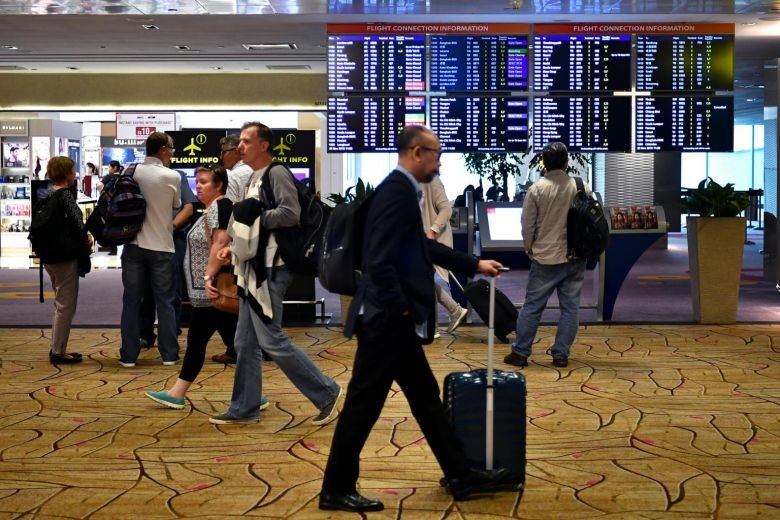Singaporeans misled into paying more for holidays by online travel booking sites: Competition watchdog


SINGAPORE - Some travellers using online travel booking sites have ended up paying more than they bargained for because of the non-transparent pricing and marketing practices used on these sites, said the competition watchdog.
The Competition and Consumer Commission of Singapore (CCCS) flagged this concern on Monday (Sept 30) when it released the findings of a nine-month-long market study on the online travel booking sector in Singapore.
To tackle such practices in the industry and beyond, it is proposing guidelines on price transparency for all consumer-facing businesses. The guidelines will provide more clarity on what constitutes an infringement of consumer protection laws, and set out the factors and circumstances that the commission may consider in assessing if advertised prices and related practices are potentially misleading.
The commission flagged four common pricing and marketing practices that could mislead consumers: Drip pricing, pre-ticked boxes, strikethrough pricing and pressure selling.
1. Drip pricing: This refers to the practice of adding mandatory or optional fees during a transaction or payment process, resulting in a final price that is higher than advertised. This can lure consumers into making a purchase based on incomplete price information, and restrict competition by making it harder for consumers to compare product offerings across suppliers. One common practice is displaying prices without including booking and credit card fees, and add-ons such as insurance.
CCCS' recommendation: Suppliers should ensure that any unavoidable or mandatory fees or charges are included in the total headline price. Where any mandatory fees or charges cannot be reasonably calculated in advance, the existence of such fees should be clearly indicated upfront.
2. Pre-ticked boxes: These are checkboxes to purchase additional products or services that suppliers have pre-selected for consumers. They can lead to consumers buying unwanted add-on products as a result of failing to opt-out. Examples include car rentals and sightseeing packages.
CCCS' recommendation: Suppliers should avoid using pre-ticked boxes to automatically include add-ons. If such boxes are used, suppliers must provide proper disclosures of the goods or services offered in a clear and prominent manner.
3. Strikethrough pricing: This refers to the practice of representing a discount on a product where the original price is crossed out adjacent to the sale price. It can mislead consumers into making a purchase or paying a higher price if the comparison between a current and a crossed-out price is false or misleading or if a consumer cannot verify how the merchant has arrived at the crossed-out price.
CCCS' recommendation: When a discount or comparison with a previous price is made to represent a price benefit, merchants should include a bona fide previous price so that consumers are not misled about the savings they may achieve.
4. Pressure selling techniques: They can create a false sense of urgency for consumers to make a purchase based on inaccurate information. Examples include promoting a temporary "sale" or "special" price for a limited period when the price will still be available beyond the limited period or falsely advertising "limited stocks" when there are stocks left.
CCCS' recommendation: False or misleading claims that create unwarranted pressure or a sense of urgency for consumers to make an immediate purchase should not be made. Additionally, when using the term "free", suppliers should ensure that this representation is not false or misleading. Any qualifiers or terms and conditions should be stated upfront clearly and prominently.
The Commission said the in-depth study was conducted between July last year and April this year amid growing use of online travel booking platforms. It looked at the practices of 38 online travel websites, including online travel agents, metasearch engines and traditional travel agents with an online presence. Interviews and surveys with about 750 industry members, such as airlines and hotels, were also conducted.
This is the first market study by the Commission to examine competition and consumer protection issues, since the competition watchdog took on the additional function of administering the Consumer Protection (Fair Trading) Act in April last year.
The full 60-page report, published on its website, details the online travel booking ecosystem and the practices that the Commission said can raise concerns about consumer protection and fair competition.
The Commission is seeking public feedback on the proposed guidelines on price transparency until Oct 21.
This article was first published in The Straits Times. Permission required for reproduction.